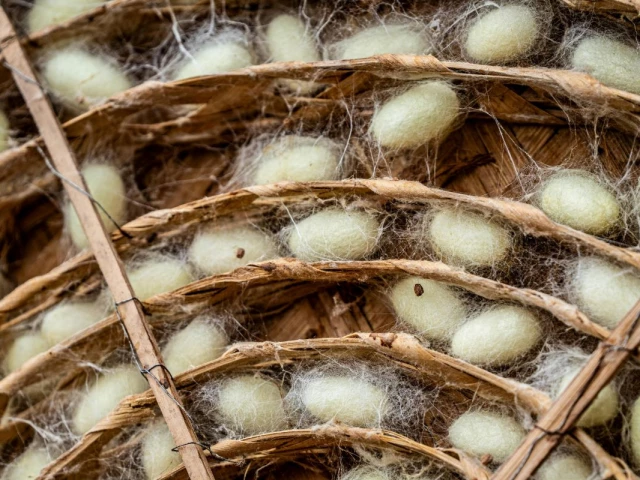LAHORE:
Several projects claim to relieve poverty and strengthen the rural economy in Punjab, but the non -wood forest product sector (NTFP) has continually neglected, despite its potential to connect small businesses and provide employment to thousands of rural families, especially women.
The experts are of the opinion that if an adequate policy is adopted in this direction, Pakistan will not only reduce poverty, but will also be self -sufficient in the field of herbal medicine and cosmetics. Fatima Bibi by Changa Manga, a suburb of Kasur, who has been supporting the expenses of her homes by raising silk worms for many years, is a living example.
“I used to obtain an income from RS60,000 to RS70,000 buying silk seeds by RS4,000. He had also received training in growing fungi, but due to the lack of practical facilities, the process could not advance,” Fatima said. Like Fatima, thousands of families who were trained in silk production are now unemployed.
The Punjab Forest Department had launched a project worth RS136 million in 2021 for serulture, fungal agriculture, beekeeping and cultivation of medicinal plants. In the first phase, 1,500 men and 500 women were trained, but the project was discarded the following year. As a result, all those who had practically dreamed of starting this business were disappointed.
According to Dr. Zafar Siddique, associate professor at Government College Lahore, from 70 to 80 percent of the world’s population still uses Herbal medicine. Pakistan has great opportunities for the cultivation of plants such as Aloe Vera, Basil, Kalonji, Ajwain and Moringa, but we trust India imports to meet their demand. “If women receive seeds and basic training, agriculture can be easily initiated through the kitchen gardening, which will improve both income and health,” said Dr. Siddiqui.
Farooq Bhatti, deputy director of Serulture, confirmed that his organization was currently working only in the creation of silk with limited funds, while only experimental projects were underway in fungi, honey and herbs. “The Japanese Morera has been cultivated in several districts, including the Changa manga, which is used for food for silk worms, as well as for medicine and crafts,” Bhatti revealed.
Rana Saeed Anwar, president of the Silk Farmers and Traders Association, said the project aimed at using 100,000 families in 2021 and 2022, which increased to one million gradually. “But with the end of the address, this dream was unfulfilled. Approximately 400,000 people could be used only by beekeeping and 700,000 people for silk creation, while 30,000 women could obtain income at home from the cultivation of medicinal plants,” Anwar said.
The general director of the Department of Forestry of Punjab, Azfar Zia, said that the Government was committed to activating the agricultural products sector that are not the Timber. “The herbal and plants survey has been completed in 1.25 million acres of forests in Punjab. It is our objective to provide an alternative employment of non -timber forest products to nearby communities so that people can benefit from these resources instead of cutting wood,” Zia said.
Experts agree that projects such as forest products that are not made of wood can guarantee sustainable livelihoods for rural women and small farmers, however, a systematic policy and regular funds are key requirements.




